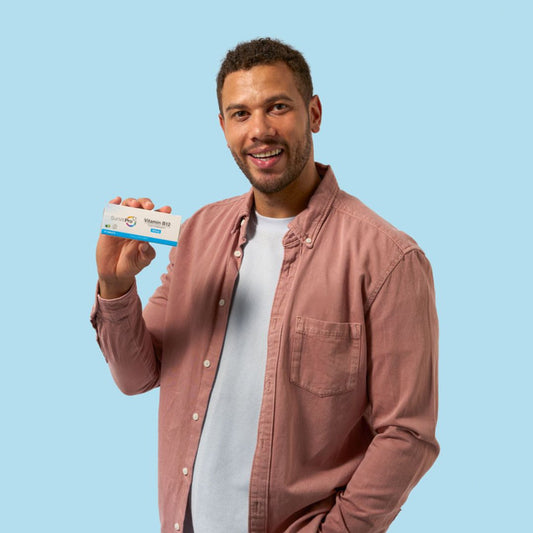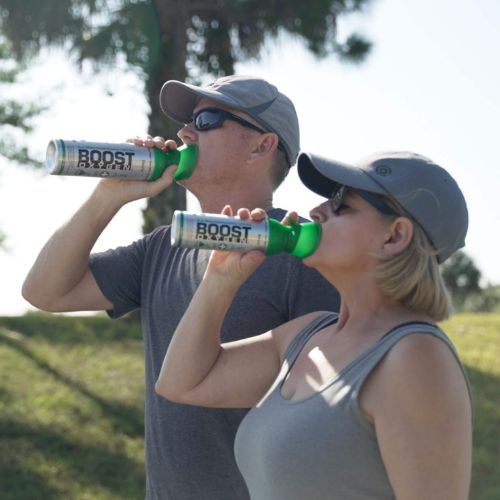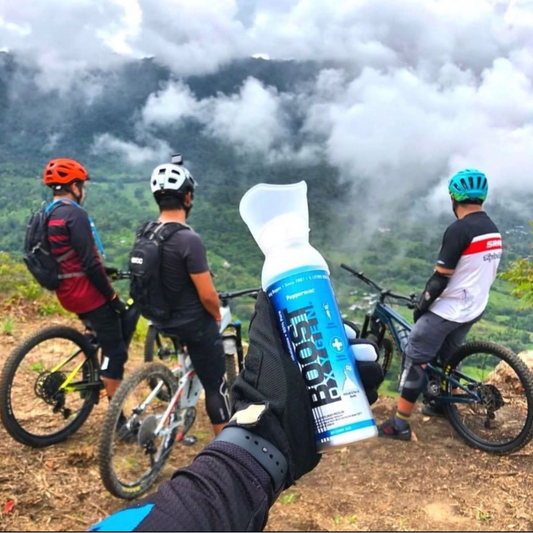
January has been and gone and with the London Marathon in its traditional April slot (amongst other running events), people across the country are lacing up their shoes and running. Whether you’re in the throes of a marathon training block, looking to PB in a 5k or 10k or simply looking to take part in more Park Runs this year, your nutrition and supplementation is an essential component of your training plan. The marathon itself is a particularly difficult distance and requires a substantial amount of training, carbohydrates and protein. Having said that, whilst we’re focussing on marathon training, supplementation can be incorporated into any runners’ plans.
Why is supplementation important for runners?
In recent years, the carbon plated ‘super shoes’ have somewhat dominated discussions, driven by the continual fall of marathon world records such as that set by the late Kelvin Kiptum in 2023’s edition of the Chicago Marathon - an astonishing 2 hours and 35 seconds.
Having that correct kit (especially the fast shoes) is certainly an important factor, we also have to bear in mind that it’s your legs that do the running and your whole body that will need to be up to the challenge. As such, as runners we need to make sure that the ‘engine’ is properly fuelled and taken care of in order to perform at our best come race day.

It’s all about recovery
Talk to, or listen to, any high performance athlete or coach and you’ll soon realise that whilst the training sessions are important for creating the necessary stimulus for improvement, the magic happens during recovery. This is when your body responds to the training stimulus, repairs and builds back stronger, ultimately improving your ability to run faster and longer.
You will of course have to commit to specific sessions in order to create this stimulus. However, it’s not necessary to be 100% focussed on a ‘no pain, no gain’ mentality. It’s almost counter intuitive! More specific to recovery, it’s a common mistake that runners focus too much on the individual sessions and therefore neglect their recovery. Remember, this is where your body is actually improving.
So, you’re embarking on a training plan to run your fastest race ever. What supplements should you be looking at to enable smarter, faster recovery?
Protein:
The word protein might conjure images of gym bros in string vests and protein shakers, but don’t discount the importance of protein. It’s the primary agent in repairing and building muscle, essential in that all important recovery process.
It doesn’t have to be complicated. Most people don’t need to be worrying about amino acids or the somewhat debunked ‘anabolic window’ after training. It is advisable though that runners look to consume a high protein diet to aid recovery post exercise. You can look to utilise protein shakes as an easy way to top up your protein intake, especially if you follow a specific diet that may be low in protein.
Protein, like super shoes, steals the limelight when it comes to nutrition and supplementation so we won’t beat the drum too hard on this, suffice to say that consuming the requisite amount of protein should be one of your fundamental nutrition strategies.
Electrolytes:
The lead up to spring marathons in the UK, through the winter, is not exactly known for scorching temperatures. In turn, this can often lead to runners neglecting their hydration during training.
Just because it is cold does not mean that you are not sweating. It may not be at the same rate as you might sweat during the summer, but it’s still happening!
If you’re running short distances, simple water may suffice. However, as the distances and time on feet increase, the level of fluid loss through sweat naturally also increases. We need to bear in mind that we lose electrolytes such as sodium and potassium through our sweat. Not only do these electrolytes play an important role in how our muscles function during exercise, they also play a role in our absorption of fluids.
The general advice is that you look to take on electrolytes before, during and after running. You can perform sweat tests, or if you’re really serious, you can test the concentration of electrolytes in your sweat. The primary point being that you’ll want to make sure that you use electrolytes to ensure that you are hydrated for and during your session, as well as re-hydrating after you’ve put in those hard yards. Electrolytes can often be included with gels taken during running or can be in a form of dissolvable tablets to put in drinks or chewable tablets taken after exercise.
Calcium:
Everyone has heard that ‘running is bad for your knees’. The data would show that this is actually highly contestable, though we can’t deny that running involves high impact forces that can affect our body, including our skeleton.
Similar to the misnomer that running is bad for your knees, for most people the mention of ‘calcium’ will immediately make them think of strong and healthy bones. The good news is that this is true! Calcium is a critical mineral for your bones (and teeth) so ensuring that your daily calcium intake is sufficient is something that all runners should take into account, especially for marathon or ultra runners. As the distances increase, there is a heightened risk of the dreaded stress fracture which can throw a real spanner in the metaphorical works. Read our article more information on calcium supplementation, including recommended doses, including foods high in calcium as well potential supplementation.
Calcium has a number of other benefits that don’t tend to be discussed. For example, calcium is part of your electrolyte balance and perhaps less known, it is also important for the contraction of your muscles. So, if you’re a runner and have not looked at your calcium intake, the evidence would suggest that this is worthwhile!
Vitamin D:
Let’s start with the most obvious. It’s common knowledge that Vitamin D is created by the body through exposure to sunlight. The problem here is that the UK isn’t exactly known for its sunny days at the best of times, let alone during a winter training block. In addition, a lot of us work in offices or work from home, further reducing our exposure to sunlight. As such, the winter months can create Vitamin D deficiencies.
But how does a lack of vitamin D impact me, especially as a runner?
Vitamin D plays an important role in the gut’s ability to absorb important minerals and nutrients including calcium. We’ve already evangelised the importance of both electrolytes and calcium in your diet, but without sufficient Vitamin D, you may be limiting your body’s ability to absorb these all important nutrients.
Vitamin D is also utilised for muscle recovery and a deficiency can materialise in general fatigue. As such, not only are runner’s muscle recovery requirements increasing with their training load, but combined with a reduction in vitamin D creation during the winter months, it makes sense that further supplementation would be beneficial.
For more information on vitamin D deficiency and how to rectify this, read our article here.
Sleep:
In this article we’ve focussed on supplements for runners to help with recovery, though we couldn’t leave out sleep. It is often overlooked, but it is the ultimate recovery tool.
Unfortunately, not all of us are professional athletes where we can program our days around training and recovery. The reality is that you lead a busy life, juggling work and social commitments with your training. Taking naps during the day is probably only something that can be considered during the weekends, but this does not mean that you cannot focus on getting better sleep throughout the week.
Sleep is a complex topic with well known figures such as Andrew Huberman evangelising the importance of sleep for recovery and performance. Take it step by step and gradually look to improve your sleep through techniques such as avoiding screens and avoiding stimulants like caffeine before bed time. Ultimately though, some of the biggest benefits can be found through simple regularity. You’d be surprised at how much impact going to bed and waking up at the same time everyday can improve your sleep. Getting six to eight hours sleep a night is the secret of a better day.
Don’t underestimate the power of sleep for your recovery and therefore your performance!












